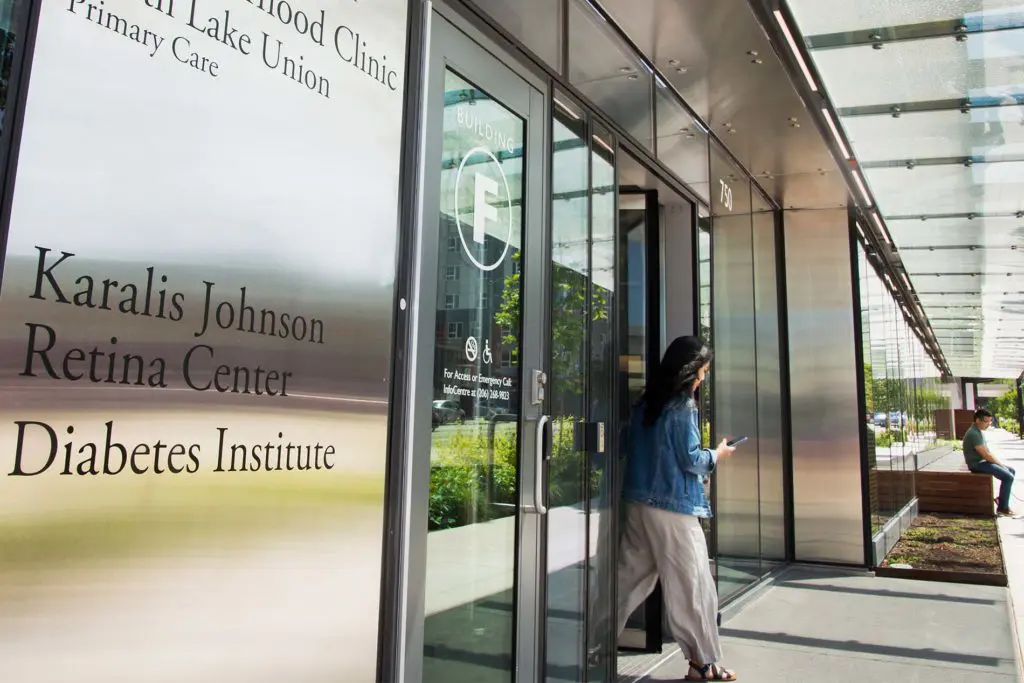Your gift fast-tracks cutting-edge research to prevent and treat vision loss and helps expand vision care in our community. Here’s how you can make a difference:
Power Breakthroughs in Vision Research
At the UW Medicine Karalis Johnson Retina Center, researchers are harnessing big data — extremely large data sets that can be analyzed with powerful supercomputers — to better understand, diagnose and treat eye diseases.
This emerging field is known as computational ophthalmology, and in the next five years, it could lead to significant breakthroughs in earlier diagnosis and intervention for neurodegeneration.
But we can’t do it without you. Will you join us and help accelerate vision research?
Yes! I want to accelerate leading-edge computational ophthalmology research.
Give TodayYour Impact
Reveal links between eye health and brain health Your generosity accelerates innovative research that can lead to better treatments and even cures. Dr. Cecilia Lee recently found that patients who had cataract surgery had a nearly 30% lower risk of developing dementia from any cause, compared with those who did not have cataract surgery. Understanding the connection between the aging eye and brain may offer insights and potential therapies to slow or prevent Alzheimer’s disease and other age-related dementia.
Learn more >>
Support more equitable, open-access research Philanthropic support helps our scientists create powerful new tools, like open-access datasets that all researchers can use. Dr. Aaron Lee and Dr. Cecilia Lee are co-leading a new UW Medicine-led study arm funded by the NIH, which aims to develop more inclusive model datasets that medical scientists can explore with artificial intelligence algorithms.
Dive deeper >>
Leverage the power of big data to improve vision care Your gift helps us advance patient care. Find out how new AI algorithms can predict a patient’s blood pressure, BMI, age and even biological sex using an image of the retina. And learn how our researchers anticipate we’ll be able to use big data to noninvasively study the eye, better understand brain health and predict other diseases in the future.
Watch now >>
Fuel Breakthroughs in
Computational Ophthalmology
UW Medicine is at the forefront of vision science and attracts leaders in ophthalmology research and care. The Karalis Johnson Retina Center is one of only three centers in the country where patients can benefit from the combination of clinical care and the latest retinal research discoveries in a single environment. At the Karalis Johnson Retina Center, clinicians and researchers are working together to find cures for retinal diseases like macular degeneration. The Computational Ophthalmology Program housed at the Center has already made groundbreaking discoveries on the link between eye diseases and Alzheimer’s disease.
Watch Dr. Cecilia Lee Describe the Latest Findings at the Karalis Johnson Retina Center
Stories

What Your Eyes Reveal About Your Risk of Alzheimer's
Computational ophthalmologists discover a link between eye health and brain health.
Read story >>

Cataract Surgery Linked with Lower Risk of Dementia
Dr. Cecilia Lee, of the Karalis Johnson Retina Center, led the longitudinal study published in JAMA Internal Medicine.
Read story >>
